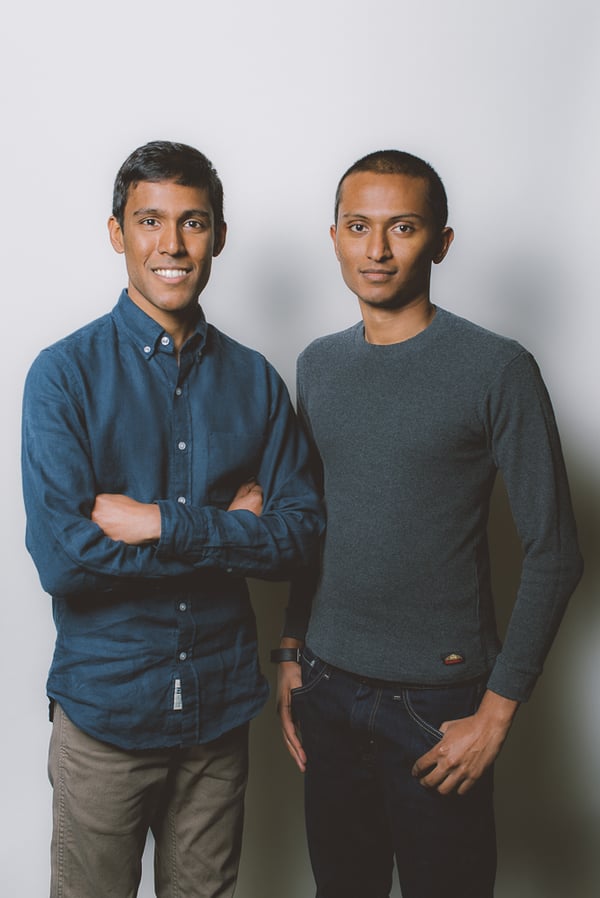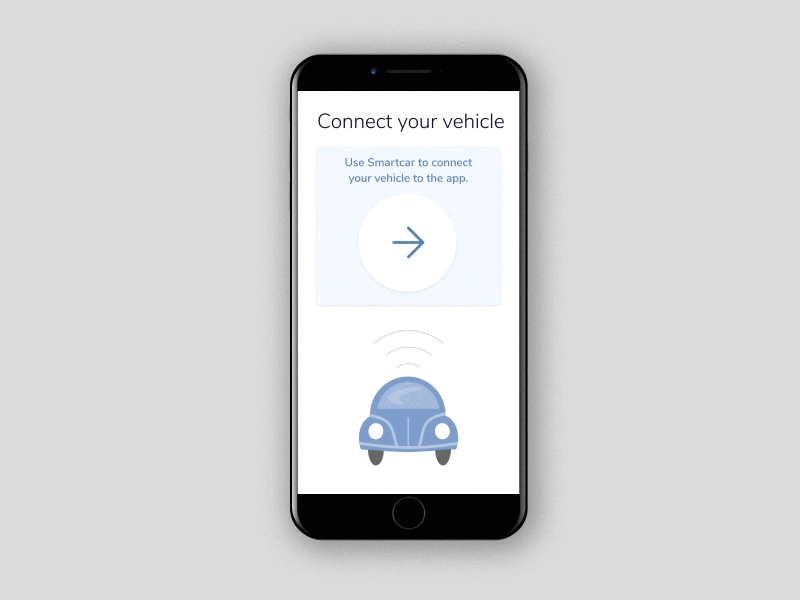One of the four waves of innovation that we focus on with the Vehicle 2.0 Podcast is “Connected Cars”, and there isn’t a better guest to kick off the podcast with than Sahas Katta, CEO and Founder of Smartcar, Inc. His experience and knowledge working in the software development realm of the automotive industry makes him an exceptional resource as we introduce the concept of connected car to a wider audience.
We’re excited to offer a selection of highlights from our interview with Sahas below. If you’re interested to hear more, give the episode a listen and subscribe to stay tuned for future episodes!

What is Smartcar?
Scot: Give us a little perspective on Smartcar. What's your kind of elevator pitch when you're at a cocktail party and people ask you what you're building?
Sahas: Smartcar is the API for your car. If you're a software developer, you can write a couple lines of code after reading our API docs on our website and you can actually do a lot of really incredible stuff to your car. Whether that's getting the location of the vehicle wirelessly over the Internet, its odometer reading, or even sending signals to the car to lock or unlock. It stores remotely over the Internet so it could write it literally a couple of lines of code on your computer and the car in your driveway will magically unlock. That was something that was very difficult to do, and we somehow figured out how to turn it into a process where developer can go from start to finish in making that happen in no more than a few minutes.

Sahas on Smartcar sponsoring hackathons
Scot: Last time I was in your office, it seemed like half the folks there were coming back or going to a hackathon. And that seems to be a big way you guys get your APIs in the hands of folks. Why don't tell us about the hackathons that you guys sponsor?
Sahas: So when we think about are the connected car market and when we look at the industry, what we see is the innovation that's happening moving forward is no longer necessarily hardware innovation, but really software innovation. The next generation of companies and ideas that are making the world a better place and turning mobility in general into something that's more accessible for more people than ever is really being driven by a software advancements. And when you answer the question of who is it that built the software, it comes down to developers. Most of the innovations until today in the automobile or mobility space weren't really being driven by application developers. And that's because there hadn't been really a platform for them in the space. What we realized is we need to figure out a way to get this in front of all sorts of developers, even if it's a girl in her dorm room who as a hobby is building the next killer app without knowing it.
So that meant we had to figure out how to get our product in the hands of a lot of really talented students. And what we've been doing for the past year or so is actually going to some of the top universities in the country where they're hosting these pretty large hackathons where, in some cases, over about a thousand people show up to these and spend 48 hours building an application. And we've been bringing vehicles to them, to these hackathons, like a real Tesla in person. And these students, you should see the passion in their eyes. They get super excited and within 48 hours to have some incredible application actually built that's working and they're able to actually test it on a real car that's parked right in front of the building. We've seen this as a really great way to get our product into the hands of a lot of innovative early developers and we think a lot more companies should actually be doing something in that space.
Sahas on autonomous vehicles
Scot: What are your thoughts on autonomous vehicles as a guy that tinkers with cars? Are we going to get there, is it always going to be some kind of a limited use, or maybe a public transit kind of a thing?
Sahas: I think we're going to get there quicker than most people think. I have the unique luxury and privilege to live in Mountain View, CA. If I walk out of my office or out of my home and just watch the street for no more than 10 minutes, I will likely in that short window of time have seen multiple self-driving cars drive by; whether it's Google's Waymo, Apple’s self-driving car or something out of Ford's R&D lab, BMW’s, Honda's, Nissan's or one of the self-driving car startups like Nero or Drive.ai or any of these companies. I'm not even talking about standing in front of Google's campus, pretty much any street in this town. You probably won't go 10 minutes without seeing more than at least two different types of self-driving cars driving by with all sorts of brilliant engineers working on solving this problem.
So I am very optimistic that some modes of transport will become fully autonomous. Whether specific types of routes between, let's say the SFO Airport in San Francisco, downtown or some specific paths. At the very least, I'm quite confident will become so well mapped out and so well structured that you can confidently send someone down that road in an autonomous vehicle with almost zero risk. And I think something of that sort is probably no more than months away from actually occurring.
Sahas on mobility as a human right
Scot: You kind of spend all your time marinating in this world; any other thoughts on the future of vehicles and where they're going?
Sahas: When we look at what is the purpose of vehicles in most of the United States, the automobile is the only way to get to most places. Whether it's work, whether it's your school library, grocery store, hospital, to visit your family or friends. It’s the only viable option because there isn't really a strong public transit infrastructure in most parts of the country. Which means that mobility and cars are really more than just a luxury, it's actually a necessity, which really makes mobility fundamentally a human rights issue. To be a productive, successful member of society and to have a path to opportunity in a better life, you need mobility.
So, in our opinion, we want to really figure out a way to empower these developers to build all of these new forms of transit, new forms of car sharing, new forms of car rental, new forms of insurance, all of these things to become possible. Ultimately we’ll hopefully see a world in the near future where transportation is more accessible to the demographics that have kind of have been left behind in the dust. Where transportation is more affordable, it's more efficient, it's environmentally friendly, and ideally safe as well.
It was such a delightful experience to have Sahas as a guest on the Vehicle 2.0 Podcast. His mission at Smartcar clearly comes through in his style of thought leadership, and we’re fortunate to have him as a partner here at Spiffy!
If you don’t want to miss a future episode of the podcast, then be sure to subscribe via your favorite podcast app or website and stay tuned for new releases every week!
Posted in Vehicle 2.0




